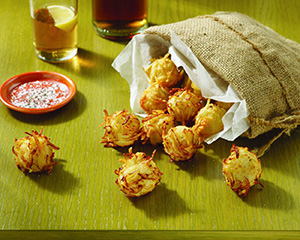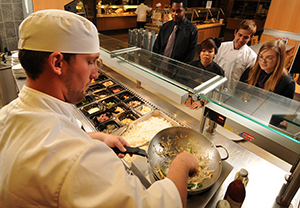Majority of Restaurant Workforce Sees Long-Term Career Potential and Upward Mobility
Tuesday, 07 October 2014 13:18The National Restaurant Association Educational Foundation unveils the most comprehensive restaurant-industry workforce study in decades. Among findings were average annual salaries for chefs and cooks and restaurant managers.
Nine out of 10 restaurant employees say they are proud to work in the restaurant industry, while three-quarters believe the industry offers them a strong career path and upward mobility, according to a new workforce study released in August by the National Restaurant Association Educational Foundation (NRAEF).
As the most extensive research of the restaurant sector workforce in decades, “Who Works in the U.S. Restaurant Industry” details the opinions of nearly 5,100 Americans who currently work or formerly worked in the industry, as well as those who own or operate restaurants.
“This landmark research finds that employees and owners/operators have a decidedly positive perception of our industry and believe extensive career choices and opportunities for advancement are readily available,” said Dawn Sweeney, president and chief executive officer of the National Restaurant Association (NRA) and NRAEF. “This study offers fresh and compelling insight into why so many Americans choose to chart their careers in the restaurant industry, how they advance and why so many plan to stay until they retire.”

 As Tater Tots® hit the Big 60, the Idaho Potato Commission celebrates six decades of tot-inspired menu creativity.
As Tater Tots® hit the Big 60, the Idaho Potato Commission celebrates six decades of tot-inspired menu creativity. True tastes of the bayou are surfacing throughout the South, and
True tastes of the bayou are surfacing throughout the South, and  In this final of three installments focusing on employing an effective interaction strategy to increase loyalty and sales in your program’s student-run foodservice outlets, influencing four customer perceptions—“Fresh,” “Trust,” “Mystery” and “Ownership”—is key to success.
In this final of three installments focusing on employing an effective interaction strategy to increase loyalty and sales in your program’s student-run foodservice outlets, influencing four customer perceptions—“Fresh,” “Trust,” “Mystery” and “Ownership”—is key to success.